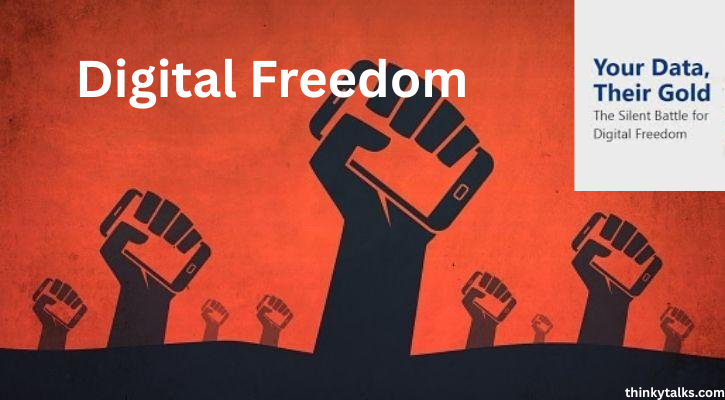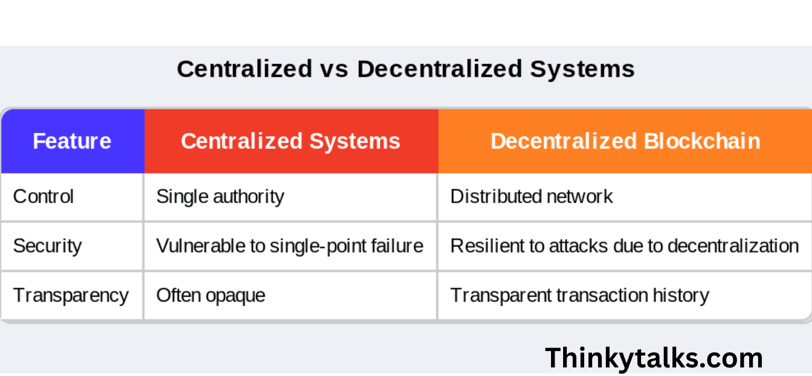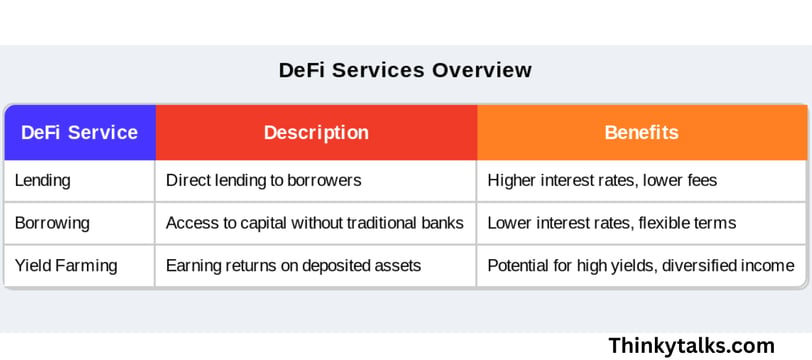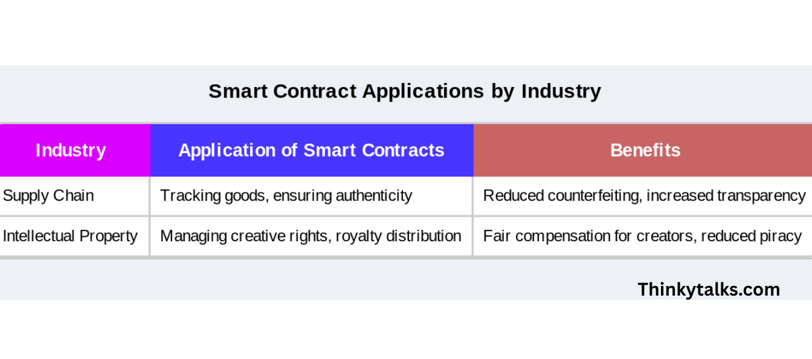The Future of Online Privacy: Digital Freedom in Blockchain
Explore how blockchain redefines digital freedom in blockchain technology, decentralized control, financial independence & privacy in Web3. Learn more now!
Hassan Abdullah
5/8/20249 min read


The Future of Online Privacy: Digital Freedom in Blockchain
As we navigate the complexities of the 21st century, a pressing question emerges:
Are we truly aware of Digital freedom?
The concept of digital freedom in blockchain technology is evolving, particularly with the rise of crypto updates and Web3 technologies. The crossroads of blockchain developments and personal rights is changing the definition of online freedom. This essay investigates the changing terrain of blockchain-based digital rights, including its ramifications and the part played by developing technologies.
Key Takeaways
Understanding Web3 privacy innovations in the context of emerging technologies.
The impact of Blockchain technology on personal liberty.
The role of Web3 in shaping digital rights.
Blockchain trends influencing the concept of digital freedom in blockchain technology.
The future of digital freedom and its implications.
The Evolution of Digital Freedom in the Connected Era
It's more crucial than ever to grasp what digital freedom in blockchain technology genuinely means as we navigate this rapidly evolving digital environment. The internet we once knew—a venue to only read papers or check emails, has undergone significant change. Today, this is where we work, learn, shop, share, and maybe even define our identities. It affects nearly every aspect of our daily life, thus the inquiry of who controls our information and our online choices becomes more personal than ever.
From Web1.0 to Today's Digital Landscape
It started with Web1, the initial version of the internet. At that time, we essentially just read on the internet. We browsed sites and viewed information, but there wasn't much else we could do.
Web2 came along and revolutionized everything. We didn't just read—we began to participate. We uploaded photos, made comments, liked status updates, and chatted with other individuals from all over the globe. The internet was now social.
Now we're transitioning to Web3. It's only just new, but it has a large ambition: to give us more control. With Web3, we can own our data, shield our identity, and be freer online.
Technology's Impact on Personal Liberty
Technology has changed our lives in incredible ways. We can talk to anyone, anywhere, in seconds. We can learn anything with a quick search, build businesses from our homes, and share our voices with the world online. It's empowering. But there's another side we don't always think about. The more connected we've become, the more exposed we are. And that brings up tough questions: How much of our digital freedom in blockchain technology are we giving away just to stay connected? And who's really holding the keys to our digital lives?
The Data-Freedom Paradox
We're living in a strange kind of trade-off. The more we rely on apps, platforms, and digital tools to make life easier—ordering food, chatting with friends, managing money—the more we quietly give away little pieces of ourselves. Our personal data has become the price we pay for convenience. And that makes you stop and think: Is it worth it? What's the real value of our data, and how much control are we actually giving up just to make life a bit more seamless?
Convenience vs. Control
With just a few taps here and there, you can accomplish almost anything in the digital world, which greatly simplifies life. However, we lose control over our own data as a result of that convenience. Without knowing where or how our data is used, we all click "accept" without thinking. The question is, are we willing to make that concession in order to feel a little more at ease?
The Value of Personal Data
Our own information has emerged as the most prized asset on the web. Each scroll and every click is worth money, but no one knows what they're sharing. Knowing how our digital trail works means we make better decisions and insist on tougher privacy regulations in the blockchain age.
Understanding Digital Freedom in Blockchain
Digital freedom in Blockchain technology has been fundamentally changed. We have for the first time tools allowing us to reclaim control, over our data, our money, even our identity. It's about trust as much as it is about technology. No gatekeepers, no middlemen, just you and the system.
In this part, we'll explore what really makes blockchain so powerful when it comes to digital freedom Web3 spaces, and how it's giving everyday people more say in a world that's becoming more connected, and more controlled, than ever.
Core Principles of Digital Autonomy
Discussing digital autonomy via blockchain is essentially discussing decentralized online freedom, the freedom to own and control your identity, your data, and your transactions without having to rely on a central authority. It's about putting control back in your hands. Decentralization is central to this concept: the system is distributed over many places rather than everything running through one location. That means it's much harder for anyone to shut it down, censor it, or take control. It's a shift from relying on others to being in charge of your own digital life.
Blockchain as a Freedom-Enabling Technology
DeFi: Reimagining Financial Freedom
With the advent of DeFi, the concept of financial freedom is being reimagined through digital freedom in blockchain technology, offering users unprecedented control over their assets. Decentralized Finance (DeFi) leverages blockchain to create a more inclusive and transparent financial system.
Beyond Cryptocurrency: The DeFi Revolution
Beyond cryptocurrencies, a wide range of financial services and products are included in the DeFi revolution. It makes permissionless decentralized finance possible, which eliminates the need for middlemen and allows anyone with an internet connection to access financial services.
Permissionless Finance and Its Implications
A key component of DeFi is permissionless finance, which permits users to freely lend, borrow, and trade assets. Financial inclusion and economic empowerment are significantly impacted by this paradigm shift.
Lending and Borrowing without Intermediaries
DeFi platforms increase efficiency and lower costs by facilitating lending and borrowing without the need for conventional financial intermediaries. Our understanding of financial services is being totally transformed by this direct peer-to-peer transaction model.
Yield Farming and Liquidity Provision
Two essential DeFi ecosystem activities that enable users to produce returns on their assets are yield farming and liquidity provision. These systems encourage involvement and support the DeFi markets' stability and liquidity.
Success Stories: Economic Empowerment through DeFi
Numerous success stories of economic empowerment have been made possible by DeFi, ranging from entrepreneurs using DeFi platforms to finance their businesses to individuals obtaining credit for the first time which showcase digital freedom in blockchain technology. These personal experiences highlight how DeFi has the ability to reinvent financial independence and build a more equitable financial system.
DeFi will probably have a significant impact on the global financial scene as it develops further, presenting fresh chances for financial empowerment and diversity. If you want to study more basics about DeFi click on this link:https://thinkytalks.com/global-rise-of-defi-2025
Web3 Privacy Revolution
A new era of digital freedom, where privacy is crucial, is being ushered in by the advent of Web3. It's becoming more and more obvious that the old paradigm of data collection and surveillance is untenable as the internet develops.
Escaping the Surveillance Economy
The current web is frequently criticized for its dependence on user data, which has led to the commodification of personal information and the creation of a surveillance economy. By granting users more control over their data, Web3 aims to upend this paradigm.
Data Ownership in Web3
Users can manage, monetize, and restrict access to their data—a cornerstone of digital freedom in blockchain technology.
Privacy by Design Principles
Because Web3 platforms are constructed using privacy by design principles, user data is safeguarded from the beginning. This strategy differs greatly from the conventional practice of adding security measures after the fact.
"The future of the internet is decentralized, and it's going to be a wild ride."
Andreas Antonopoulos, Expert in Blockchain and Web3
Self-Sovereign Identity: Reclaiming Your Digital Self
The idea of self-sovereign identity is one of Web3's major innovations. This enables people to take charge of their online personas independently of centralized authorities.
Privacy-Focused Platforms Gaining Momentum such as Decentralized social media and zero-knowledge apps.
Smart Contracts, freedom from Intermediaries promotes transparency.
Real-World Applications Transforming Industries, taken an example of Ukraine receiving billions of dollars in aid through crypto.
Supply Chain Transparency
Intellectual Property and Creative Rights
Limitations and Future Developments
Although smart contracts have many advantages, they also have drawbacks. Among the issues that must be resolved are scalability, regulatory compliance, and the requirement for standardization. We can anticipate more advanced applications and increased adoption across a range of industries as the technology develops further.
Balancing Freedom with Responsibility in the Digital Age
When considering the issue of digital freedom, the line between freedom and responsibility starts to merge. Digital landscapes provide us with a unique set of challenges that we must balance our freedom within the digital realm and the responsibilities bound to it.
The Ethics of Digital Freedom
Digital freedom raises significant ethical questions. How can we actively seek freedom without infringing on others or their rights? The ethics associated with digital freedom impact our views towards actions of others in our broad community of digital entities. The ethics portion of digital freedom entails respecting the privacy of the person, not spreading misinformation, and encouraging a culture of digital literacy.
Navigating Regulatory Landscapes
A noteworthy challenge in the pursuit of digital freedom and responsibility is preparing for and coping with complex regulations. Policymakers and regulatory agencies are constantly adjusting laws and regulations to deal with the evolving space. Obtaining compliance while trying not to compromise stated principles is a fragile situation not only for individuals but also for organizations.
Compliance without Compromising Principles
Meeting regulatory requirements without compromising core values is essential. This requires keeping current with the regulatory landscape and changing practices as necessary. For example, understanding the implications of recent data protection legislation can help organizations comply with regulation while safeguarding user privacy.
Advocacy and Education
The aspects of advocacy and education are of great importance when it comes to striking a balance between digital freedom and responsibility. By informing people about digital rights and obligations, we can create a better-informed and responsible digital community. Advocacy can be used as a channel to influence regulatory policies, which in turn will protect and allow freedom along with the responsibility that is required.
if you want toget more updates on digital innovation: follow thinkytalks.com
Building Sustainable Digital Ecosystems
It is of utmost importance for the future of the digital world that sustainable digital ecosystems be created, while freedom and responsibility are kept in balance. It implies the setting of practices into motion which are not just innovative but also ethical. It is possible for us to create a digital environment that is not only free but also responsible by working collectively.
The Future of Digital Freedom
Achieving digital freedom is a complex process that includes changes in societal perceptions, regulatory frameworks, and technological advancements. As we've seen, digital freedom in blockchain is essential for creating a more decentralized and just online environment. The future of digital freedom in blockchain technology hinges on decentralization, transparency, and responsible innovation.
With blockchain technology and cryptocurrencies leading the way in financial independence and self-sovereign identity, the future of digital freedom appears bright. In order to keep the digital world inclusive and sustainable as we go forward, it will be essential to strike a balance between freedom and responsibility.
We can create an atmosphere where digital freedom flourishes by adopting the ideas of decentralization and transparency. Continued innovation, teamwork, and a dedication to upholding individual rights in the digital era are necessary for the future.
It is evident that the intersection of technology, governance, and social values will influence the digital landscape in the future of digital freedom, providing previously unheard-of chances for development and empowerment.
FAQs
What is digital freedom in the context of blockchain and cryptocurrency?
Digital freedom refers to the ability of individuals to control their personal data, financial transactions, and online interactions without undue interference or surveillance. In the context of blockchain and cryptocurrency, it encompasses the principles of decentralization, autonomy, and transparency that these technologies enable.
How does Web3 enhance digital freedom?
Web3, the next generation of the internet, enhances digital freedom by providing a decentralized and more private online experience. It allows users to have greater control over their data and online interactions through the use of blockchain technology, decentralized networks, and cryptographic techniques.
What role does cryptocurrency play in achieving financial independence?
Cryptocurrency plays a significant role in achieving financial independence by providing an alternative to traditional banking systems. It enables peer-to-peer transactions without the need for intermediaries, resists financial censorship, and offers a means of banking for the unbanked population globally.
What are the key principles of digital autonomy in blockchain?
The key principles of digital autonomy in blockchain include decentralization, immutability, and transparency. Decentralization ensures that control is distributed among users, immutability guarantees that transactions and data are tamper-proof, and transparency allows all transactions to be visible and auditable.
How do smart contracts automate trust in digital transactions?
Smart contracts automate trust in digital transactions by encoding the terms and conditions of an agreement into a self-executing contract. Once deployed on a blockchain, these contracts execute automatically when certain conditions are met, eliminating the need for intermediaries and ensuring that the outcome is deterministic and trustworthy.
What is the significance of DAOs in collective governance and decision-making?
DAOs, or Decentralized Autonomous Organizations, signify a new paradigm in collective governance and decision-making. They enable participants to make decisions collectively through voting mechanisms, manage treasuries, and allocate resources in a transparent and decentralized manner, thereby redefining traditional organizational structures.
For getting fresh Digital innovation updates in world, subscribe here












Thinky Talks
Stay updated on crypto, blockchain, and innovation.
© 2025. All rights reserved.
